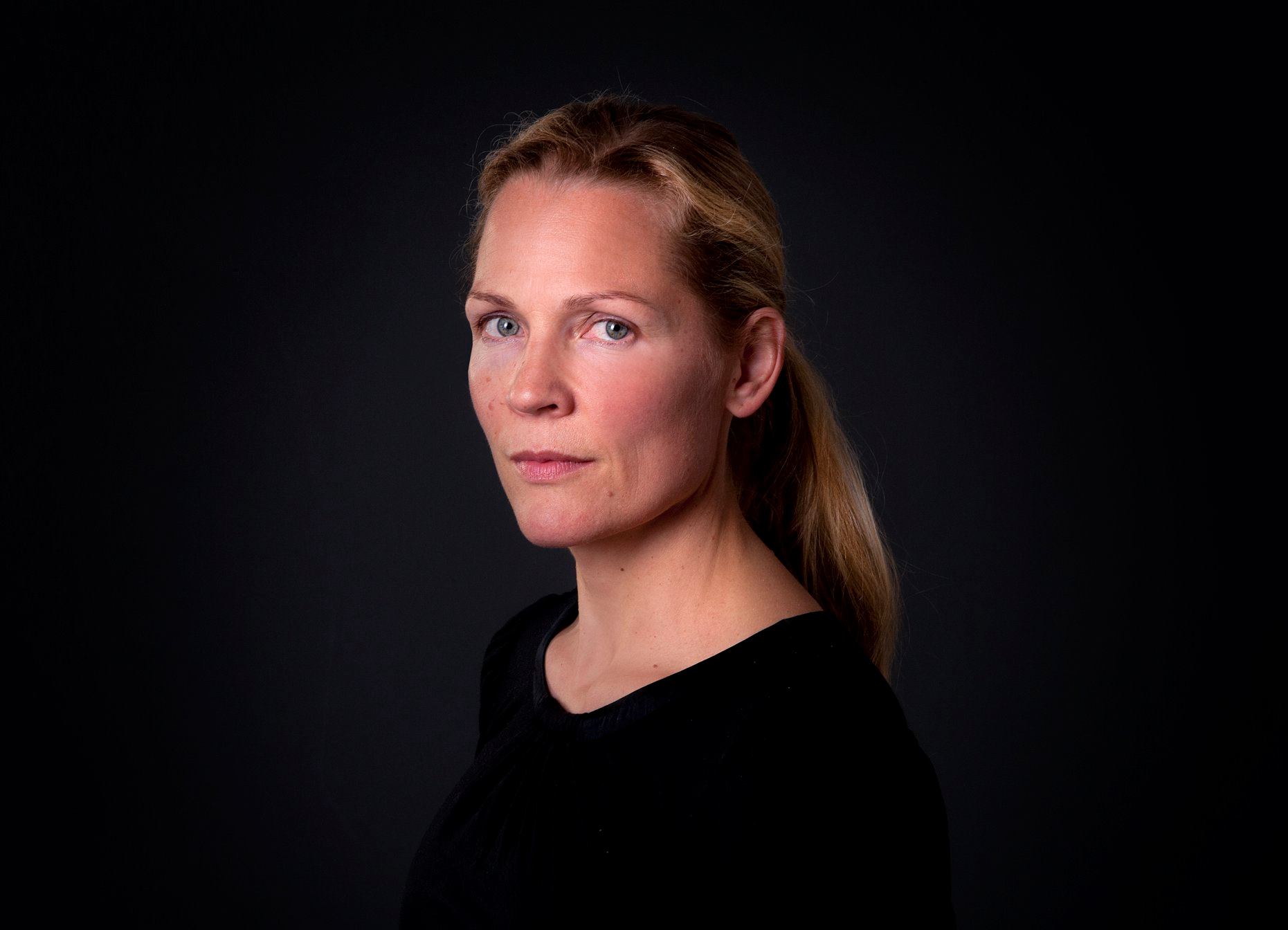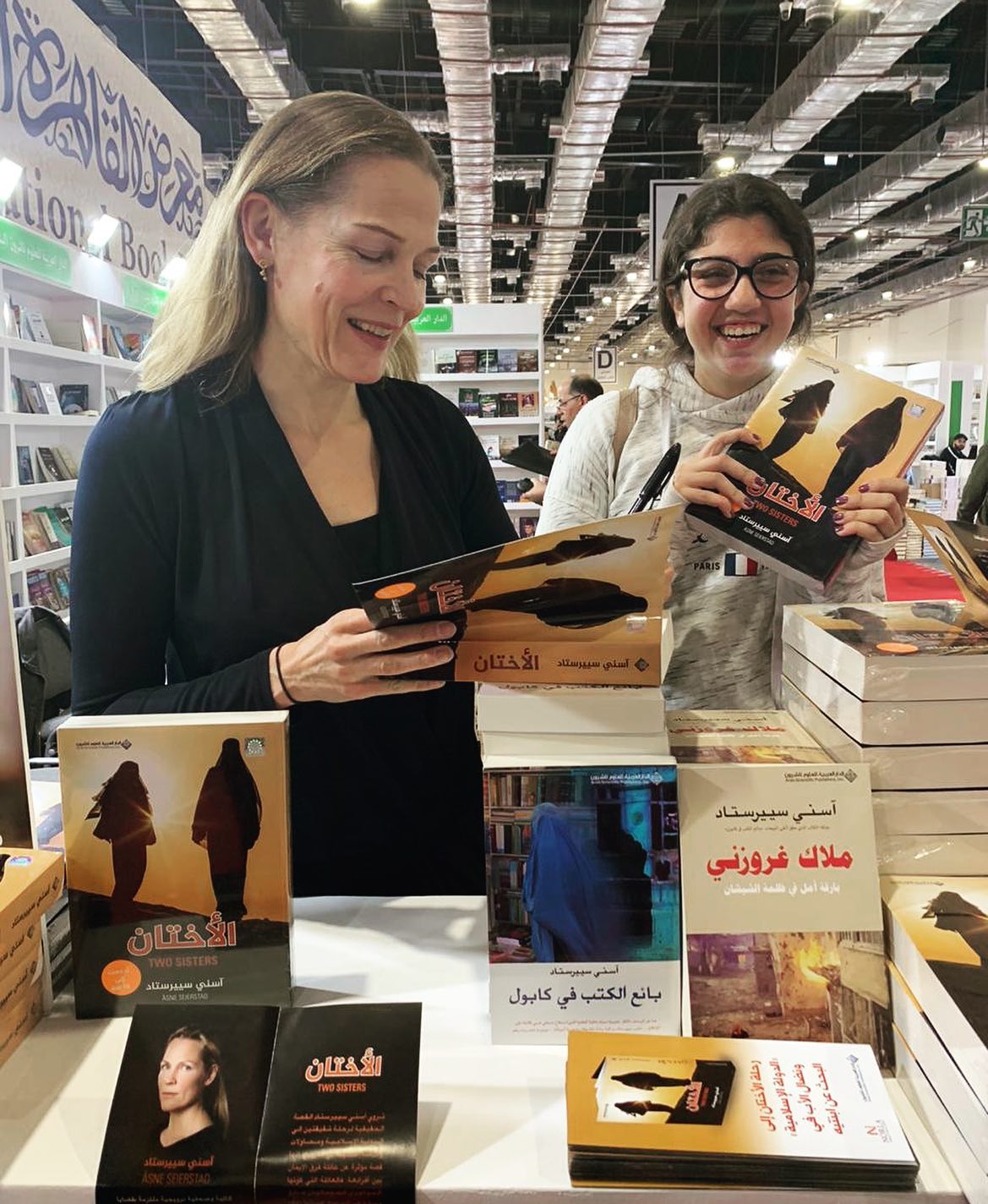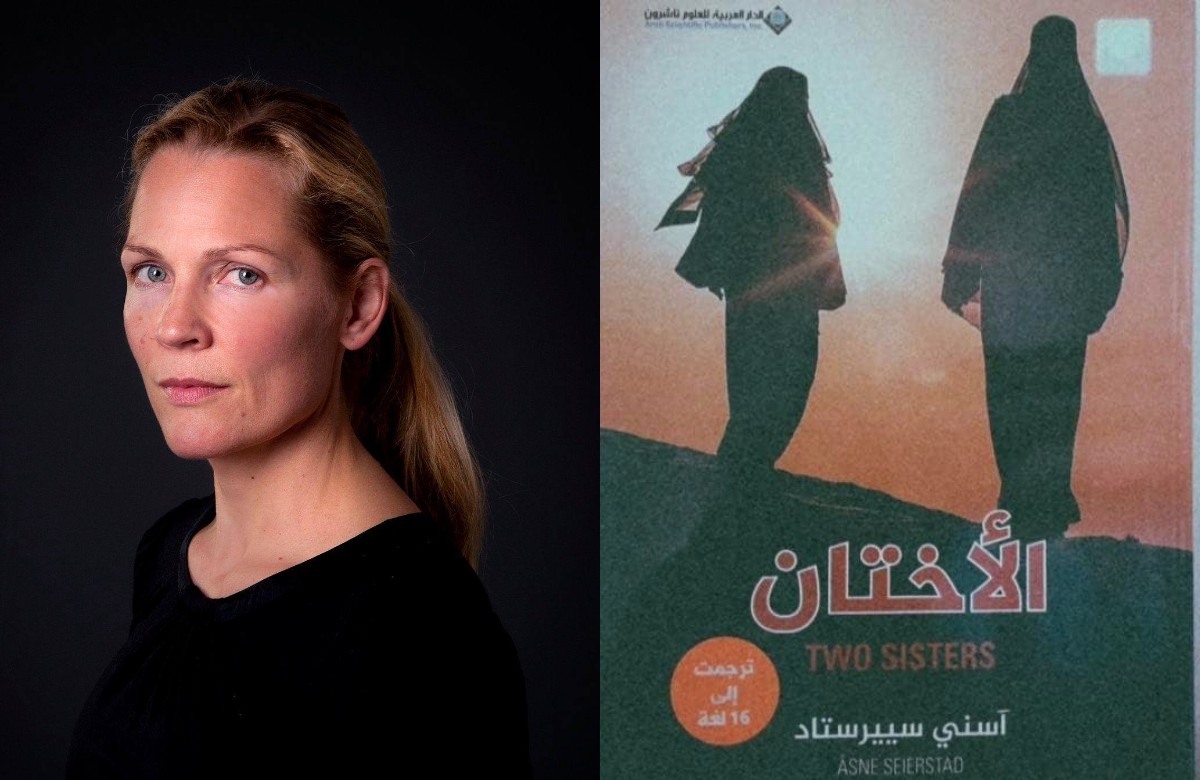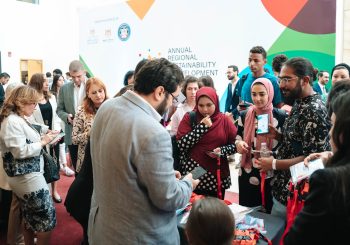
“A book is alive with discussions like this; the writer is just half the book,” exclaimed award winning Norwegian journalist and writer Åsne Seierstad as heated discussions around her latest book Two Sisters: A Father, His Daughters, and Their Journey Into the Syrian Jihad came to and end during a small event organized by the Royal Norwegian Embassy in Cairo earlier this week.
Having worked extensively as a reporter in various war-torn countries across the world, Seierstad is no stranger to getting herself right in the middle of ‘all the action’. After having graduated from the University of Oslo with degrees in Russian, Spanish and Philosophy, Seierstad immediately went into journalism, working as a reporter in countries such as Russia and China.
From 1998 to 2000, she reported from the Serbian breakaway province of Kosovo, which resulted in her first book With their Backs to the World: Portraits of Serbia, in which she recounts that which took place during this turbulent political time in Serbian history in a rather more personal manner – from the perspectives of the citizens who were in the middle of it all.
The book that really placed Seierstad in the spotlight however would probably have to be The Bookseller of Kabul, which sold over a million copies worldwide. In this nonfiction work, the Norwegian journalist and writer intricately portrays the ins and outs of an Afghan family with whom she lived for several months. The book was written around the time Seierstad was in Afghanistan, reporting on the fall of the Taliban in 2001.
Following the success of The Bookseller of Kabul, Seierstad went on to write more books revolving around what she would encounter as a reporter in places such as Baghdad (One Hundred and One Days: A Baghdad Journal) and Chechnya (Angel of Grozny: Inside Chechnya). In 2015, she also wrote One of Us: The Story of Anders Breveik and the Massacre in Norway in which she recounts Norways’s 2011 terror attacks by Anders Breveik.
In true Seierstad fashion, the internationally acclaimed writer’s latest book Two Sisters tells the riveting true story of two Norwegian-Somali sisters (19-year-old Ayan and 16-year-old Leila) who fled Norway to join ISIS (Islamic State of Iraq and Syria).
The book mainly revolves around the father’s journey in trying to bring his two teenage daughters back home to Norway. Having delved deeply into the Norwegian-Somali family’s life, Seierstad delivers a personal and gripping account of the turmoil each member of the family was going through after these two young girls took this hasty decision. “I was more of a detective than a journalist with this case,” recalls Seierstad, “it was exciting in that there would constantly be new facts.”

During the discussion at the Royal Norwegian Embassy in Cairo that was held during Seierstad’s visit to Cairo promoting Two Sisters’ Arabic language counterpart, questions of integration, identity and belonging came into play. The translation of this particular book is important to have in the Arab world as it gives us a western point of view to the IS recruitment phenomenon which we seldom have in this part of the world.
Seierstad narrates the family’s journey of integration into Norway, while pinpointing the fact that there is a large Somali community there. She explains how each member of this specific family integrated to their new surroundings well (the father, the two sisters, and their brother), except for the mother. This fear was natural in the face of the unknown as per the author who says “[the mother] was afraid of losing her daughters to Norway”.
It thus begs the question if the maternal figure could have had an unintentional role in driving her daughters away.
Seierstad however, understands that the situation of the sister’s recruitment to ISIS is much more complex and layered than it may seem. One’s feeling of belonging and community usually plays a big role in those turning to radicalization. Seierstad”s attempts at humanizing this otherwise incomprehensible radicalization of the two young girls is both important and needed in our world today. Rather than brush off that which we do not understand, there is always a needed effort to understand where these actions stem from.
By conveying this family’s story in such a personal manner, audiences are invited to change their perspectives on things they might not otherwise think twice about. Two Sisters is more than a story about two young girls who were lured into joining ISIS, but rather it is a social, cultural and psychological account on the nature of human beings.
“It is somehow more dangerous to not know them,” says Seierstad on the fact that people may not be open to the idea of getting to know more about seemingly ‘dangerous’ people or people who take unexplainable ‘bad’ decisions. In Seierstad’s perspective, humanizing and understanding such figures is greatly important and perhaps that is precisely what drives her to create these compelling literary accounts.
*Featured image of book cover of Two Sisters’ Arabic translation







Comments (0)